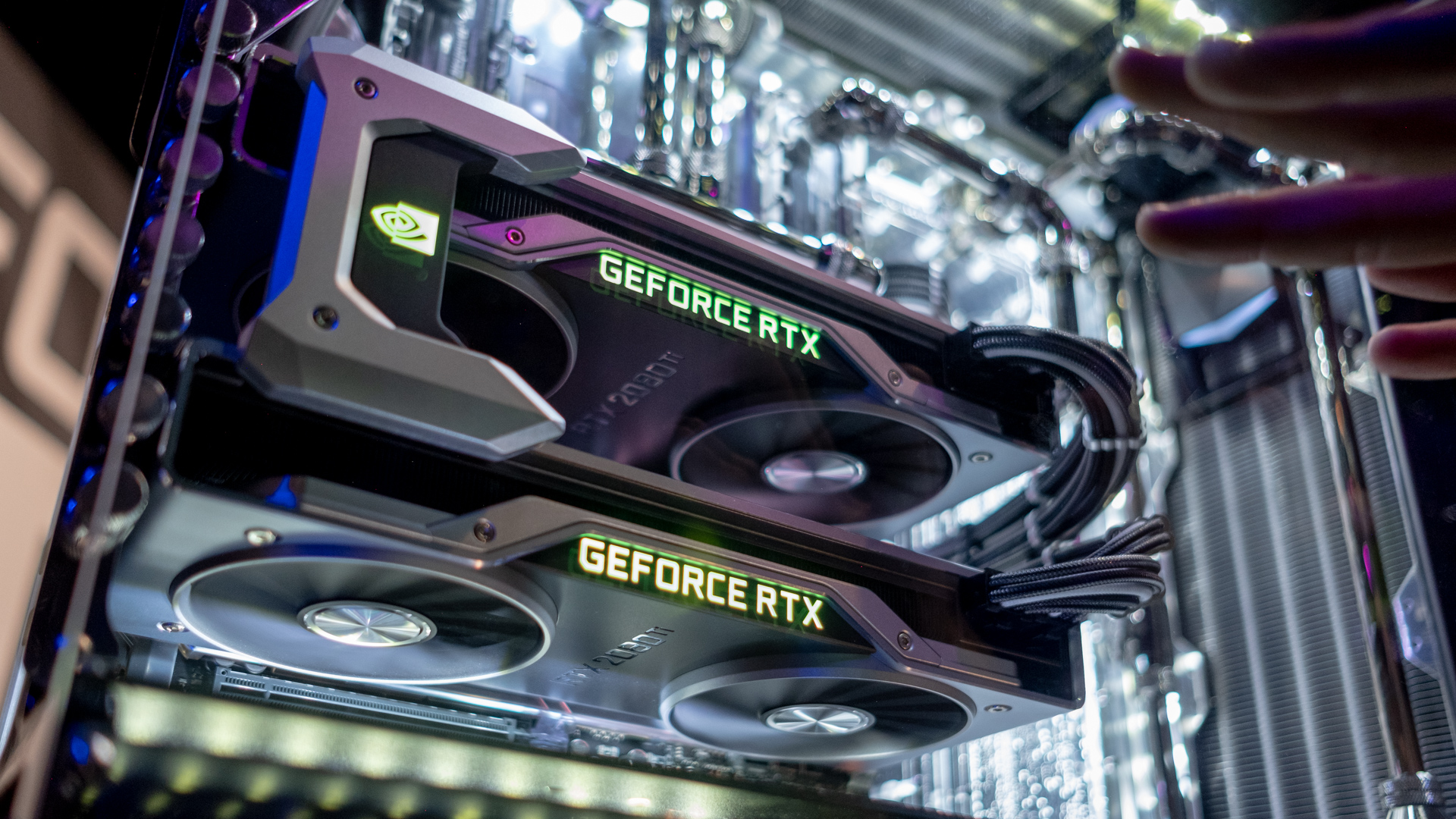Nvidia GeForce RTX 3080 and 3070 leaked specs seem too good to be true
20GB of video RAM for the RTX 3080 would certainly be quite something…

Some alleged spec details of Nvidia’s next-gen Ampere graphics cards, the rumored Nvidia RTX 3080 and RTX 3070, have been spilled online, pointing to some seriously beefy video memory configurations, if they are to be believed.
The info about the purported incoming cards was highlighted by Videocardz, although the tech site – the source of a good many GPU-related leaks – admits that its confidence is weak with this particular rumor, so we have to bear that firmly in mind.
That said, the details have been posted by several sources, namely MyDrivers and KittyCorgi (the latter being a newly created Twitter account, which is doubtless where a good dollop of doubt comes in – MyDrivers not being a particularly solid source, either).
NVIDIA GA103:60 SM , 320-bit10GB/20GB Graphics MemoryNVIDIA GA104:48 SM , 256-bit8GB/16GB Graphics Memory pic.twitter.com/IaQt6mtQ4bJanuary 17, 2020
As you can see, the tweet not only provides some spec details, but supposed die diagrams for the incoming GPUs – although of course, these could be faked (albeit the leaker has gone to considerable effort to do so).
- Nvidia is bringing ray tracing to more classic PC titles
- Find the best Nvidia GPU for you
- Check out all the best PC games
At any rate, the claimed specs relate to Nvidia’s allegedly incoming GA103 and GA104 GPUs for Ampere.
The theory is that GA104 will power the RTX 3070 (or whatever the Ampere equivalent of the 2070 ends up being called), and GA103 will be the engine of the RTX 3080. There will also be a GA102 for the 3080 Ti and Titan, too.
If this is correct, we are looking at an RTX 3080 which has 3,840 CUDA cores (compared to 2,944 in the RTX 2080), along with a 320-bit memory bus and probably 10GB of video RAM.
Sign up for breaking news, reviews, opinion, top tech deals, and more.
As you can see, the possibility of 20GB of video memory is mentioned, but this seems too good to be true. Stuffing that much RAM into a consumer graphics card (and not even the Ti spin) at this stage of the game is a real stretch to believe, particularly with the currently rumored problems around memory shortages for GPUs (namely GDDR6 supply issues).
The speculation further alleges that the RTX 3070 will have 3,072 CUDA cores with a 256-bit memory bus and 8GB of video RAM (again, the possibility of double that figure at 16GB is floated, and should be treated with similar caution).
So, between the quality of the sources, and some of these claimed specs – particularly the strangely high possible amounts of memory – it’s easy to see how shaky this one is, and we wouldn’t put much stock in it.
GTC reveal?
What we can say is that more and more leaks are now emerging for Nvidia’s next-gen graphics cards, and that in itself indicates that we could be nearing at least an initial reveal of the GPUs.
Videocardz notes that Nvidia may share more details and a fresh GPU roadmap at the GTC conference in March. This isn’t the first time we’ve heard this, as several bits of earlier speculation have indicated a potential reveal of Ampere cards at GTC.
Indeed, Videocardz has floated a potential Q2 launch for these new GPUs, and previous gossip has pointed to the possibility of these graphics cards coming out in the first half of 2020 – perhaps with a Computex launch in June. That may well be optimistic, though, but at least we’ll hopefully get to hear more about the official spec of the Ampere cards before long.
From what we’ve heard thus far, the alleged 7nm graphics cards may be up to 50% faster than current Turing GPUs, although that may be when it comes to ray tracing only – improving the performance of the latter is apparently going to be a major focus for Ampere (which wouldn’t be surprising).
Another KittyCorgi tweet claims that Ampere’s architecture will be honed for ray tracing gaming, featuring a new ‘RT Core Advanced’ design (but really that doesn’t tell us anything we don’t already know from the aforementioned speculation).
- These are the best graphics cards of 2020
Darren is a freelancer writing news and features for TechRadar (and occasionally T3) across a broad range of computing topics including CPUs, GPUs, various other hardware, VPNs, antivirus and more. He has written about tech for the best part of three decades, and writes books in his spare time (his debut novel - 'I Know What You Did Last Supper' - was published by Hachette UK in 2013).